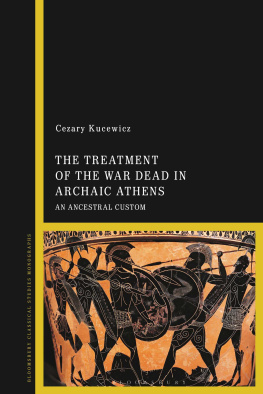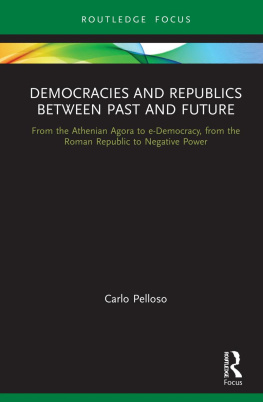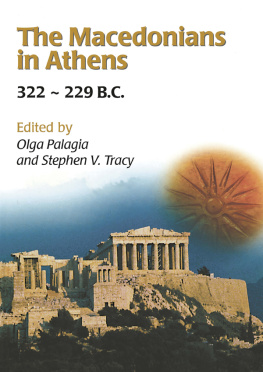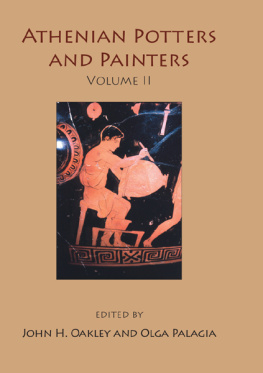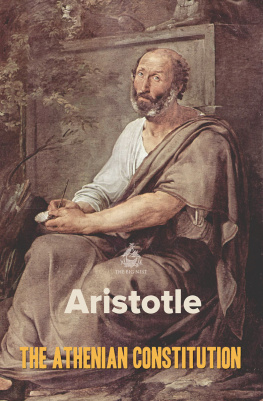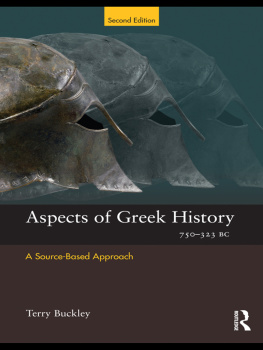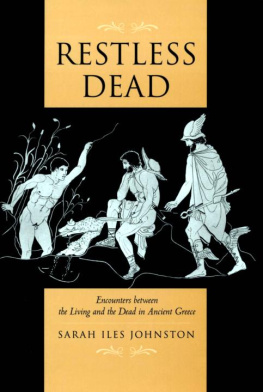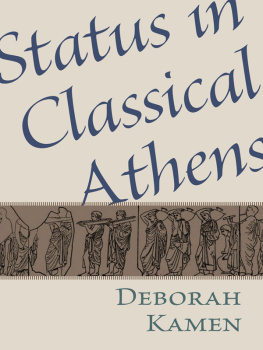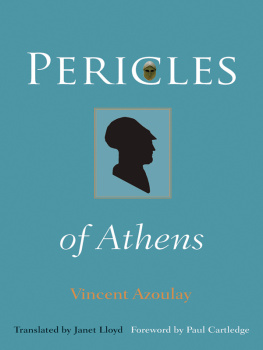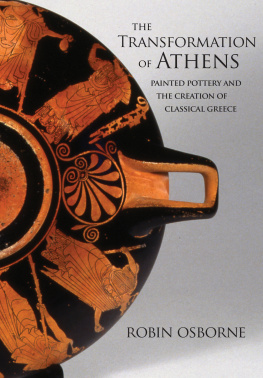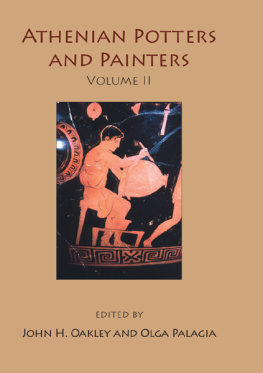
The Treatment of the War Dead in
Archaic Athens
Also available from Bloomsbury
Funerary Epigrams of Ancient Greece, Marta Gonzlez Gonzlez
Greek Warfare, Hans van Wees
Homers Iliad and the Trojan War, Jan Haywood and Naoise Mac Sweeney
The Trojan War in Ancient Art, Susan Woodford
War and Violence in Ancient Greece, edited by Hans van Wees

Contents
This book, as the title indicates, deals with how the Archaic Athenians treated their war dead. More specifically, it looks at ancestral customs, the particular ways in which the Athenians talked about their past, both recent and distant, real and imagined. This process of telling stories about the past was expressed in a rich variety of artistic forms and cultural discourses, which worked on the level of the individual, family, community and polis, helping to make sense of the present by rooting it in the traditions of the past. And while the intention of this book is to shed some light on this process, it has itself been part of my own story of curiosity and fascination with ancient Greece. In the more distant past, it began with my mum reading a watered-down, child-friendly version of the Iliad to me (with particularly nice pictures) when I was little, followed by the compulsory reading of Sophocles Antigone in secondary school, which first made me notice the dichotomy between the importance ascribed to the proper treatment of the dead in Greek tragedy compared to Homers epic, as I vividly remembered the drawing of Achilles dragging the body of Hector behind his chariot. In the more recent past, it has taken the form of many years of academic research, first during my graduate studies at Cardiff and UCL, then as part of a postdoctoral project funded by the National Science Centre, Poland (project number 2018/28/C/HS3/00418), of which this book is the result.
A two-sentence summary of my own story, however, hardly does it justice, just as merely listing the names of the people who have been an essential part of this journey feels unfair and inadequate. But it will have to do. Beginning with the more recent past, I would like to thank my doctoral supervisor, Hans van Wees, whose guidance has been invaluable since the day I first walked into his office as a struggling undergraduate from Poland. My intellectual debt to him will undoubtedly be clear throughout the chapters of this book. I am also grateful to my postdoctoral supervisor at Cambridge, Robin Osborne, who examined my thesis and has since constantly challenged me to approach the ancient evidence ever more critically. The book has also benefited greatly from the advice, comments and discussions I have had with a number of brilliant academics, including Paola Ceccarelli, Nick Sekunda, Bogdan Burliga, Josho Brouwers, Joshua Hall, Roel Konijnendijk, Matthew Lloyd and Owen Rees. Although their help has been enormous, any errors which remain are, of course, my own. Furthermore, my work on this project has been made significantly easier due to the support of the intellectual community at Wolfson College and the Faculty of Classics in Cambridge, where I conducted the final stages of my research. In particular, I would like to thank Susanne Turner, Meg Westbury and Ed Johnson. Similarly, I am grateful for the administrative support of the staff at the University of Gdask, especially Grayna Stasiowicz. Last but not least, the publishing process was facilitated greatly by the team at Bloomsbury (Lily Mac Mahon, Georgie Leighton, Alice Wright), who helped and encouraged me at every step, and by Sophie Gillespie, who copyedited the final manuscript.
Moving to the more distant past, this book owes a great deal to the love and unwavering belief in me from my parents, Ewa and Leszek, who not only introduced me to the Iliad but also enabled me to pursue the uncertain academic path. I cannot thank them enough for everything they have done for me. I have also been blessed with the support of my brother Micha and his wife Karolina (dzikuj!), as well as my Welsh in-laws, especially Eric Bye, who proofread the final manuscript (diolch!). For his lecture on the conquests of Alexander the Great, which sparked my own anabasis into the study of the ancient Greeks, I will forever be indebted to my high school history teacher, ukasz Skupny. Even though it has nothing to do with Alexander, I hope this book will live up to his standard.
Finally, despite the generous help of all these people, this book would not have seen the light of day without one person in particular. While the boundless patience, encouragement and kindness of the person that is closest to you helps beyond measure, it does so even more when that person happens to be the most brilliant academic and original thinker you know. Words truly cannot express how grateful I am for sharing this story with you, Caroline.
Throughout this book, I follow the convention of using Latinized (or Anglicized) versions of familiar Greek names. Where names are less familiar or are found on stelai, I maintain the transliterated Greek form. The original Greek is given in transliterated form in the main text where its inclusion is crucial to the argument; longer excerpts are given in the footnotes for significant passages.
All translations of ancient texts are taken from the Loeb Classical Library unless otherwise indicated. The exception to this rule is Homer. Richmond Lattimores translations of the Iliad and Odyssey are used unless otherwise stated. I am grateful to the University of Chicago Press for granting me permission to use Lattimores translation of the Iliad ( 1951, 2011 by The University of Chicago. All rights reserved). I will refer to passages from the Iliad in Arabic numerals, and will use Roman numerals for the ones from the Odyssey.
The names of ancient authors, texts, scholarly databases and journals are abbreviated according to the conventions found in the Oxford Classical Dictionary. The only exception to this is the Beazley Archive, the entries of which I will prefix with the abbreviation BA.
The war dead were granted special significance in the cultural imagination of Classical Athens. If a man died fighting for the polis, his body had to be identified and recovered under a formal truce and brought home, regardless of geographical distance, his social standing or military skill. He and the fallen fellows of his tribe would be cremated and later honoured in Athens with a public burial ceremony, held in the winter of any year the city found itself at war. The remains of the dead, divided into ten cypress coffins according to tribe, were first laid out for two days for the Athenians to pay their respects and bring offerings; they were then carried in an official funeral procession, together with an empty bier for those whose bodies were lost or irretrievable, to be laid in the Kerameikos, the most prestigious urban cemetery in Athens, where marble casualty lists were erected recounting the names of those who died in the course of the year. The burial ceremony was concluded with a funeral oration (epitaphios logos) in praise of the fallen, given by a distinguished citizen chosen by the city, as well as funeral games (agon epitaphios) with competitions in athletics, horse-racing and music.
The customs and ceremonies concerning the retrieval, treatment and burial of the war dead at Athens were described in some detail in ancient accounts, most prominently by Thucydides, who provides us with an outline of the procedures in his account of Pericles funeral speech for the war casualties of the first year of the Peloponnesian War (2.34). The fundamental premise behind the Athenian customs, famously referred to by Thucydides as the law of our forefathers (
Next page
